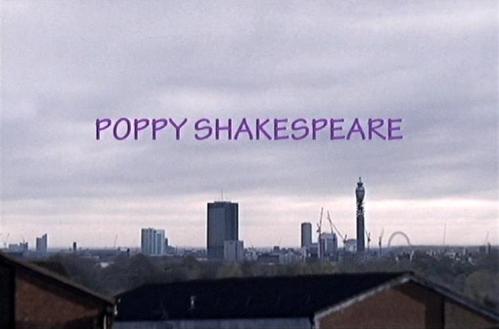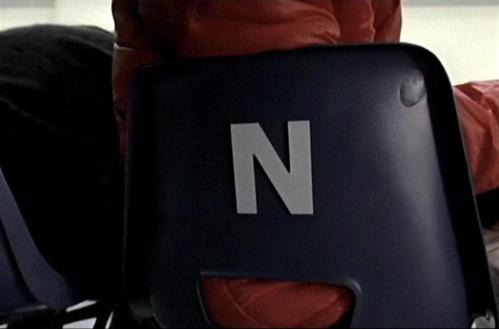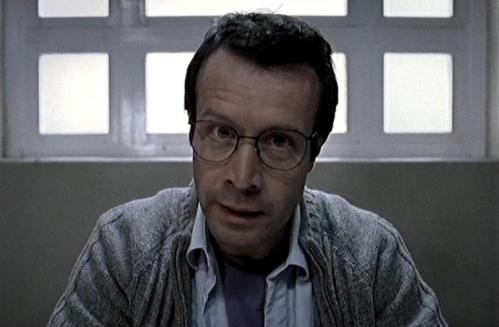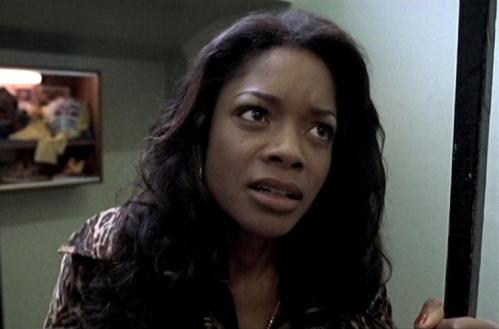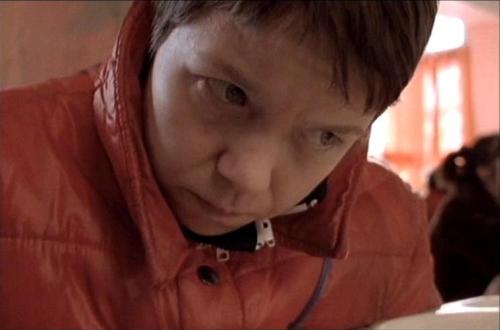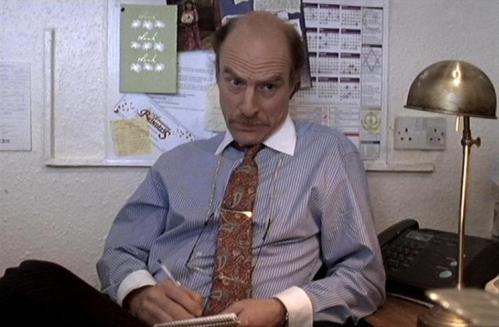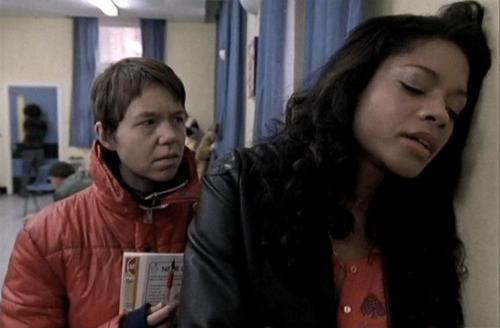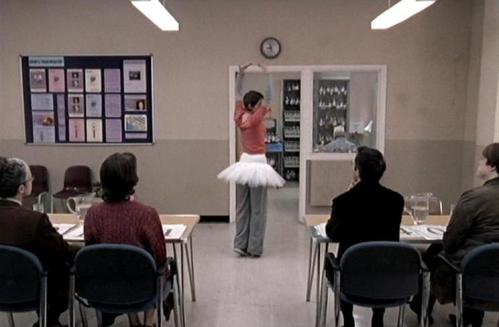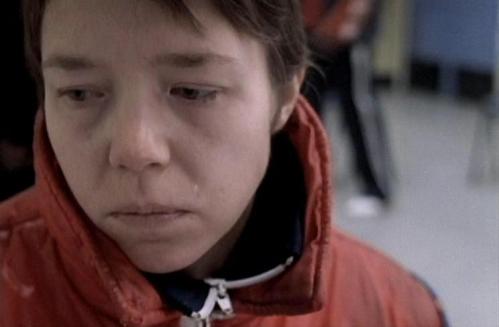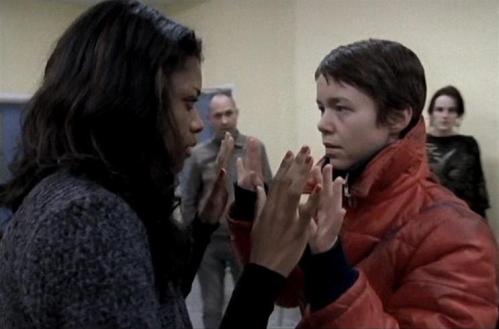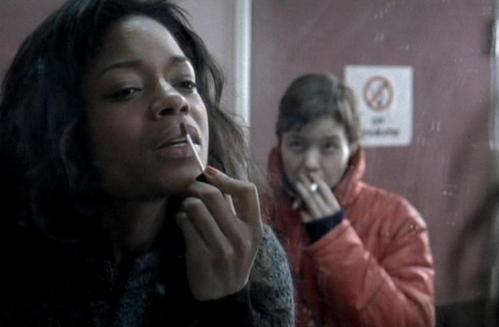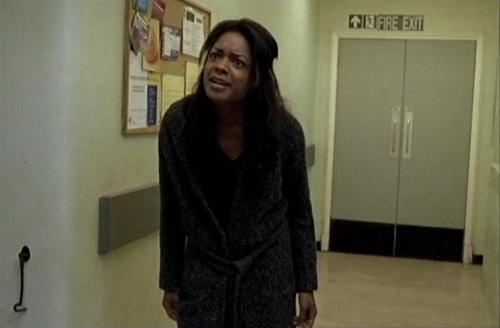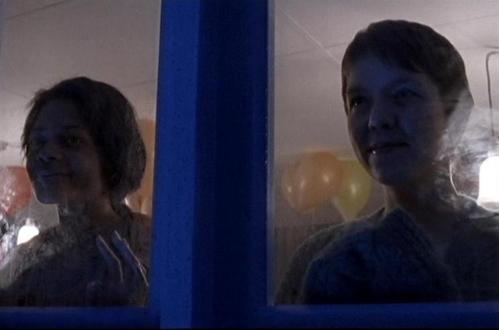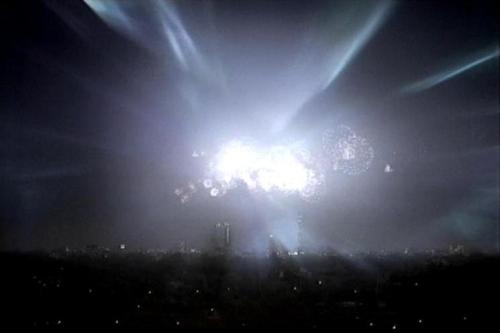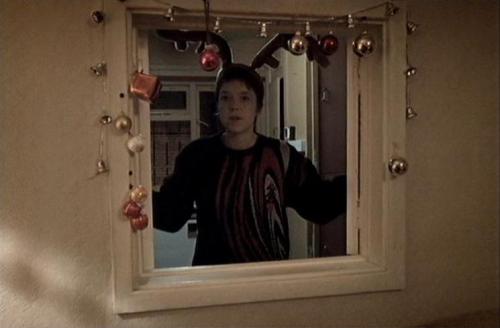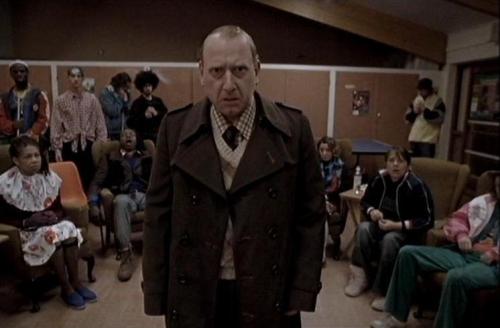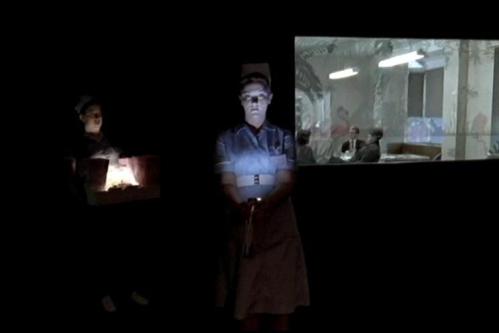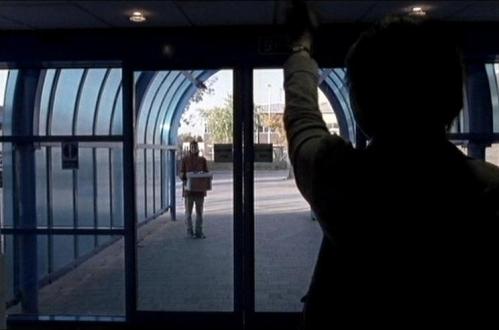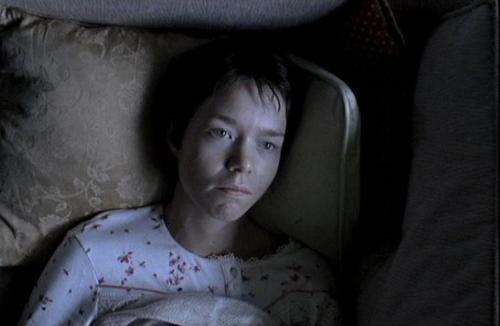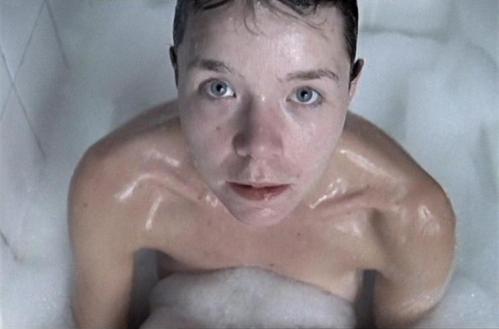MORGAN : A SUITABLE CASE FOR TREATMENT
(1966)
David Warner / Vanessa Redgrave / Robert Stephens / Irene Handl / Bernard Bresslaw / Arthur Mullard / Newton Blick / Nan Munro / Peter Collingwood / Graham Crowden / John Garrie / John Rae / Music John Dankworth / Art Direction Phillip Harrison / Costume Jocelyn Rickards / Editing Tom Priestley & Victor Proctor / Cinematography Larry Pozer / Producer Leon Clore / Director Karel Reisz
.
Despite a rousing reception upon it’s release in the mid sixties, a nomination at the Oscars, a Bafta win, Best Film at the Locarno International Film Festival that year and a Best Actress win for Vanessa Redgrave at Cannes, ‘Morgan’ has found himself somewhat sidelined these days. Written off as a confusing experiment by modern film critics, drifting into a sort of footnote limbo, usually reserved for disposable toot that missed the mark. Morgan dropped out of view while no one was looking, and lost it’s place among the key movers and shakers of the British New Wave. ‘The Knack’, ‘Blow-up!’ and ‘Billy Liar’, all share similar visual styles and surreal approaches, but all have stood the test of time unscathed by the decades since their release. I’ve a sneeking suspicion that Vanessa Redgrave may be one of the causes. Though a stunning woman back in her 60’s incarnation, and exuding much sexual alure in Antonini’s Blow-up!’, she is a far softer, less complex character in Morgan, more sweet than sexy, and ‘Blow-up!’ had a veritable parade of pulchritude before David Hemmings lens.. as with the Iconic opening of ‘The Knack’, with it’s near infinite flood of cloned feminine perfection. The loose nature of these films are held in place by a solid linchpin, like the beautiful girl in a farce. Now of course I’m not saying that Miss.Redgrave isn’t a beauty, far from it, but her elegant, willowy appeal doesn’t seem to arrest those used to such femme fatales from the period as say.. a Monica Vitti, or a Bardot.
Billy Liar’, had alot in common with ‘Morgan’ really, but Billy was a far less complex character than Morgan, Tom Courtenay’s Walter Mitty persona fails endear or engender much pity, and the kitchen sink elements seem a little clumsy in comparison to the likes of ‘The Family Way’ and ‘A Kind of Loving’. Both films were billed (somewhat loosly) as comedies, but ‘Billy’ succeeds only in making us uncomfortable in his lies.. a sort of Ricky Gervais without the funny bits. Whereas Morgan has a black humour with a perspective that reflects the new satirical comedy of Peter Cook & co. What does ‘Billy Liar’ have? It has Julie Christie. For fifteen minutes only of course, but that doesn’t really matter, her presence elevates the film considerably. Tom Courtenay was a fine actor, but David Warner (in his only substantial non-villain role) is far more interesting, and so are his fantasies. Lies catch up with Billy Liar, forcing him to deal with the consequences, accept the illusion of his dreams, and consign them to a lesser role. Morgan is in far more danger, his madness is the free will of the new generation in friction against the establishment. Morgan is fighting for the future of youth, for his very soul. A soul hidden beneath the hairy skin of an ape costume. As The Revenger’s Tragedy so elequantly puts it – ‘Surely we’re all mad people, and they whom we think are, are not; we mistake those, tis we are mad in sense, they but in clothes.’


A central motif of the ‘Morgan’ experience is that of the intercut wildlife footage, in a sort of reverse anthropomorphic comparison between the civilised world, and that of the animal kingdom. A beautiful, graceful girl seen gliding down an underground escalator becomes a majestic Peacock. Freedom is the ape, swinging among the topmost branches.. The legal system, with it’s predatorial Solicitors and bewigged, antiquated Judge are transformed into a pack of hunting lions dragging down the majesty of a regal Giraffe. ‘Have you nothing to say’ asks the stuffy Judge.. ‘I don’t recognize this Court’, replies a bemused Morgan in the dock. One other small stylistic flourish is the occasional freeze frame not uncommon in the 60’s visual lexicon, but a devise that seems to cause irritation among modern reviewers of the film. ‘Blow-up!’ clearly utilises the freeze frame to greater effect, and with greater resonance, being a film principally concerned with photography and the capture of static images. And it is quite true also that Morgan’s visual appeal isn’t in the same league as those jewels in the New wave crown by Godard, Malle, Vadim, Polanski etc. etc.. but it certainly is far from dull, and really does deserve at least a nod of appreciation for it’s bold visuals, and quirky innovations.



Morgan’s obsessions are derived and expressed principally through film, a most modern preoccupation hitherto the domain of the filmmaker and cine-artiste, now a universal means of expression and common cultural knowledge with the advent of the videotape, DVD and Digital Age. In this, ‘Morgan’ is decidedly ahead of it’s contemporaries, who utilise theatrical asides (as in ‘Billy Liar’) to represent inspirations and abstract connections. The modern audience has a wealth of cinema and TV to plunder and dissect as never before. Favourite scenes, clips and montages are uploaded and shared with an inexhaustable appetite for the moving image.


THE EGG TROTSKI SCENE

– ‘What’s all this?’

– ‘It’s an island of sanity this car. An island in a world of pain. I’m an exile waiting with an ice-pick. You do know about the ice-pick don’t you?’

-‘It’s ‘im that got it..Trotski..right there. Right in the back of ‘is skull. Leon Trotski: co-founder of the Russian Revolution, creator of the red army, great revolutionary thinker..’

‘Then BINGO! Right on the top of ‘is nut. Joe Stalin kicked Trotski out of his Mother Country..seventeen years in exhile he was.. that wasn’t good enough for Joe. No, he wanted Trotski dead.’

‘Now then, that’s Trotski (hands an egg to the policeman) This, is the ice-pick (brandishes a razor) A burning ‘ot day in Mexico, Stalin’s agent has wormed ‘is way into Trotski’s ‘ouse among ‘is wife and friends, and they’re both alone in the great man’s study.’

‘Trotski is sitting behind his desk..’

‘..quietly the killer creeps up behind ‘im and.. (crushes the egg with his razor) ..’

___________________________________________________________________________________________

– ‘You’re a class traitor Morgan, that’s what you are.’

– ‘Them’s fighting words Ma.’
– ‘I mean we brought you up to respect Lenin, Marx, Harry Pollitt. You was a Firebrand when you was sixteen, and you were clever. At Party meetings they always used to say to me, ‘You got an intellectual there Mrs.Delt, ain’t always the middle classes that’ve got all the brains y’know. It’s lads like Morgan that are gonna take over this country one of these days.’ Yees, now look at you. I don’t think you’ll take over anything Morgan.’

The one image that has managed to seep into the public conciousness, is that of Morgan done up in his gorilla costume speeding across London on a motorbike.. perhaps I should mention he’s on fire too. In any other film this would be a scene of farce (the sort of thing Spike Milligan would have done before breakfast each morn), but the donning of the Gorilla suit is far more disturbing than the comical scenario initially suggests. The suit itself is a fairly typical fancy-dress outfit, but the intense close-ups and almost mournful expressions that the cinematographer Larry Pozer manages to extract from the rigid mask are hypnotic. Morgan melds with the suit, and his sanity buckles and warps in a scene of abject horror, where he struggles to remove the mask.. wild eyed and raving.





Morgan’s fractured mindscape transforms those around him into a firing squad of communist freedom fighters, attacking him as a rogue element, dangerous to society, reminicent of No’6’s fight with for and against the individual in McGoohan’s iconic 60’s series ‘The Prisoner’.


As with the best of these stories that deal with inner turmoil and confused realities, nothing is ever truly settled. In the final scene we see a calm, collected Morgan meticulously arranging shrubs in a the garden of a Sanitarium. He is visited by a now pregnant Vanessa Redgrave, who telling him the child is his, tosses her head back and laughs in a slightly manic manner, in stark contrast to the now conformist Morgan. An ambiguity hangs in the air.. an uncomfortable judder that, were we standing, might necessitate a step backward. An element of comfort arrives in the final shot though, as the camera pulls back and reveals what Morgan has been so engrossed in.. a flower bed, in the shape of a hammer and sickle. Viva la revolution.


‘Then raise the scarlet standard high.
Within its shade we’ll live and die,
Though cowards flinch and traitors sneer,
We’ll keep the red flag flying here.’
——————-








